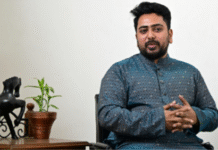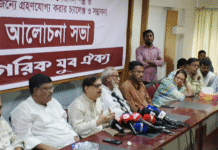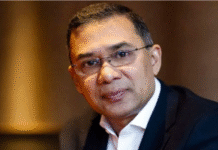THE YEAR IN REVIEW: Bid to reorganise party falls flat

The year has been full of frustration for the BNP as it neither could reorganise itself after being defeated in last year’s general election nor wage protests to free its Chairperson Khaleda Zia from jail.
Insiders said all efforts to rejuvenate the BNP had fallen flat, mainly due to rifts within the party. But the BNP had largely blamed government obstruction for this.
In the last one year or so, the BNP’s activities to free Khaleda had been limited to a few processions, and some press conferences and seminars.
The party leaders maintain that the government’s “influence on judiciary” caused their defeat in the legal battle to get Khaleda released. She has been behind bars since February 2018.
As part of the initiative to reorganise the party, acting chairman Tarique Rahman asked party leaders at the beginning of the year to form committees in every tier of leadership through holding councils.
But only nine of the 82 committees have been formed so far.
Insiders say the reorganising process stumbled as top leaders ignored grassroots opinion and formed committees with their chosen people.
“Everyone wants to hold on to their influence and that’s why they are not going for councils. They handpick leaders. But the grassroots leaders don’t accept this,” a senior leader told The Daily Star.
In Madaripur, for example, a convening committee formed in July was asked to hold a council in three months and form a full-fledged committee.
Instead of doing that, the convener Zafar Ali allegedly formed committees in eight units of the district with his own people.
Member secretary of the convening committee Jahandar Ali Jahan alleged that he was not aware of the committees being formed and complained to the central leaders. Eventually, the central office suspended all new committees in the district.
The BNP is in similar limbo in many districts, leaders alleged.
Moreover, as per the party charter, the convener and member secretary of a convening committee can’t be the president or general secretary of the full-fledged committee.
“It is a major barrier in reorganising the party. No one wants to make room for others. The longer they remain in the convening posts, the more they get to exercise power,” said a district leader.
Besides, the top leaders of the party are not complying with a provision that says one leader cannot hold more than one post.
This provision was introduced in the last BNP national council held in 2016. Khaleda Zia tried to implement it but could not finish the process as she landed in jail in a corruption case.
Tarique has also been trying to implement the provision, but has made next to no progress.
“Reorganisation is going on. We are going through a difficult time. We haven’t been able to hold meetings in different places and our leaders and activists are accused in many cases. That’s why it is taking some time. But it will be done in near future,” Ruhul Kabir Rizvi, senior joint secretary general, told The Daily Star.
Meanwhile, BNP Vice Chairman Altaf Hossain Chowhdury is also president of Patuakhali BNP, chairperson’s adviser Mashiur Rahman is convener of Jhenidah BNP, Joint Secretary General Mujibur Rahman Sarwar is president of Barishal BNP, Joint Secretary General Khairul Kabir Khokon is in Narsingdi BNP, Joint Secretary General Habib-un-Nabi Khan Sohel is president of Dhaka south BNP, Joint Secretary Aslam Chowdhury is president of Chattogram north BNP, and Organising Secretary Nazrul Islam Monju is president of Khulna city BNP.
The BNP has also taken an initiative to reform Krishak Dal, Matsyajibi Dal, and Olama Dal. Convening committees of those organisations were formed but they failed to form any full-fledged committee.
Contacted, Secretary General Mirza Fakhrul Islam Alamgir blamed the government for obstructing the process of reorganisation.









